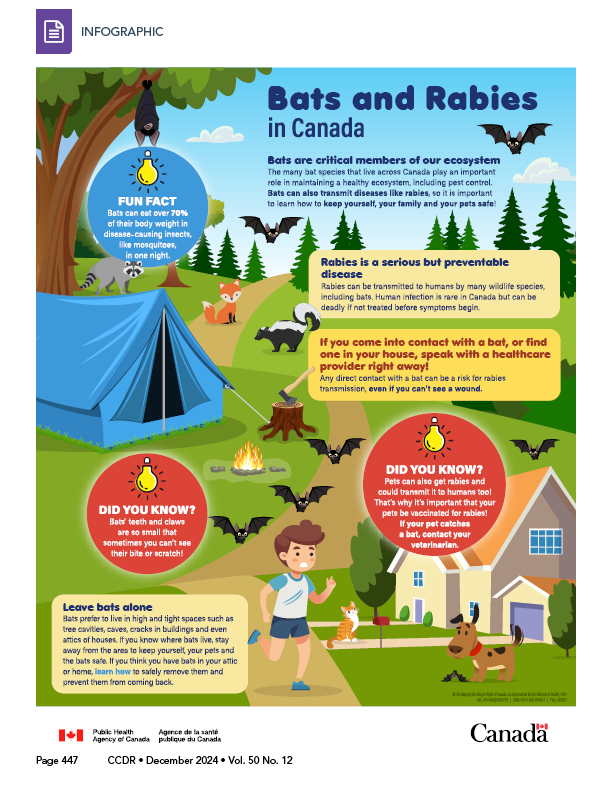Bats and Rabies in Canada

 Download this article as a PDF (488 KB)
Download this article as a PDF (488 KB)Published by: The Public Health Agency of Canada
Issue: CCDR Volume 50-12, December 2024: Tuberculosis
Date published: December 2024
ISSN: 1481-8531
Submit a manuscript
About CCDR
Browse
Volume 50-12, December 2024: Tuberculosis
Infographic

Text description: Infographic
Bats and Rabies in Canada
Bats are critical members of our ecosystem
The many bat species that live across Canada play an important role in maintaining a healthy ecosystem, including pest control. Bats can also transmit diseases like rabies, so it is important to learn how to keep yourself, your family and your pets safe!
Fun fact: Bats can eat over 70% of their body weight in disease-causing insects, like mosquitoes, in one night.
Rabies is a serious but preventable disease
Rabies can be transmitted to humans by many wildlife species, including bats. Human infection is rare in Canada but can be deadly if not treated before symptoms begin.
If you come into contact with a bat or find one in your house, speak with a healthcare provider right away! Any direct contact with a bat can be a risk for rabies transmission, even if you can't see a wound.
Bats' teeth and claws are so small that sometimes you can't see their bite or scratch!
Pets can also get rabies and could transmit it to humans too! That's why it's important that your pets be vaccinated for rabies! If your pet catches a bat, contact your veterinarian.
Leave bats alone
Bats prefer to live in high and tight spaces such as tree cavities, caves, cracks in buildings and even attics of houses. If you know where bats live, stay away from the area to keep yourself, your pets and the bats safe. If you think you have bats in your attic or home, learn how to safely remove them and prevent them from coming back.
